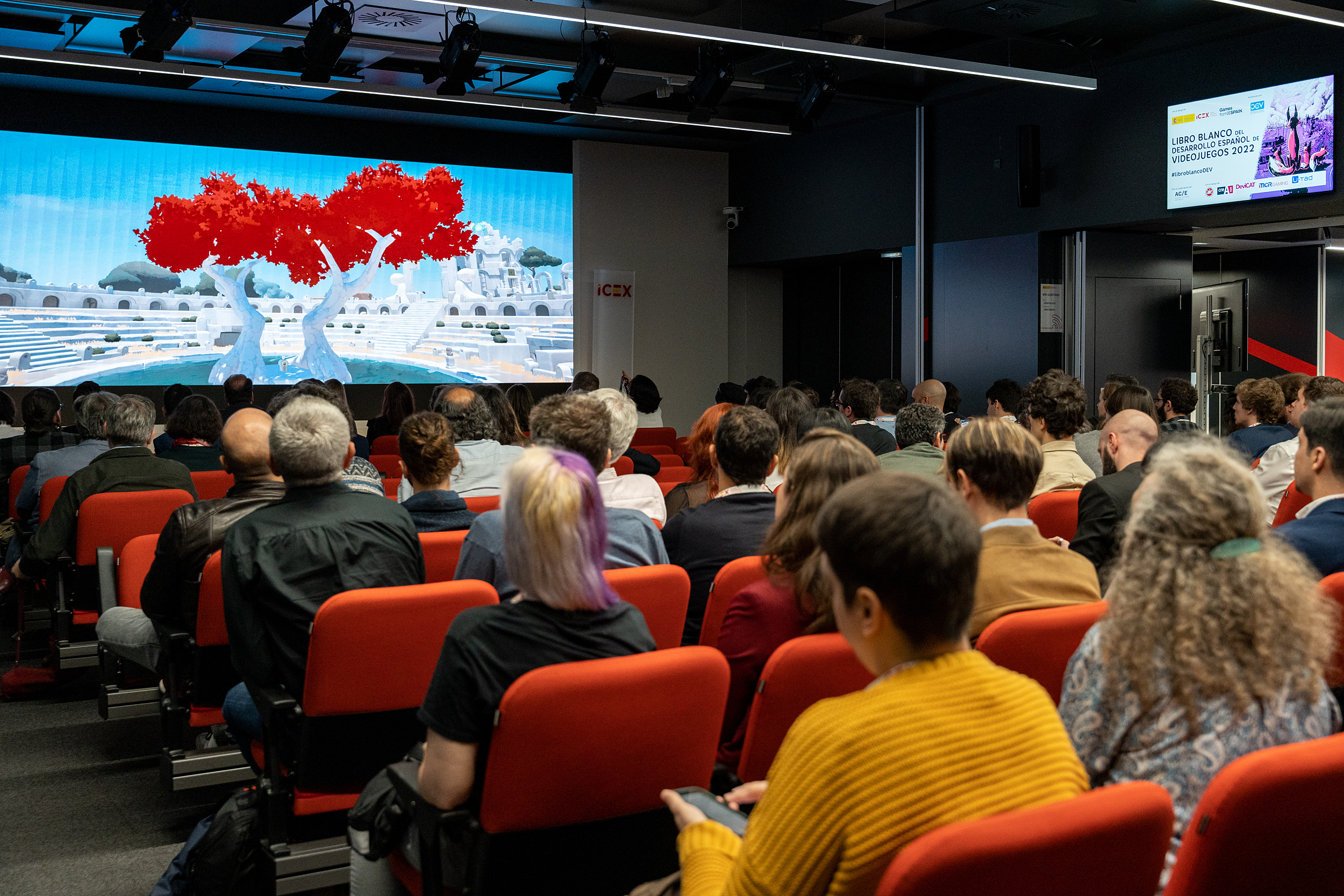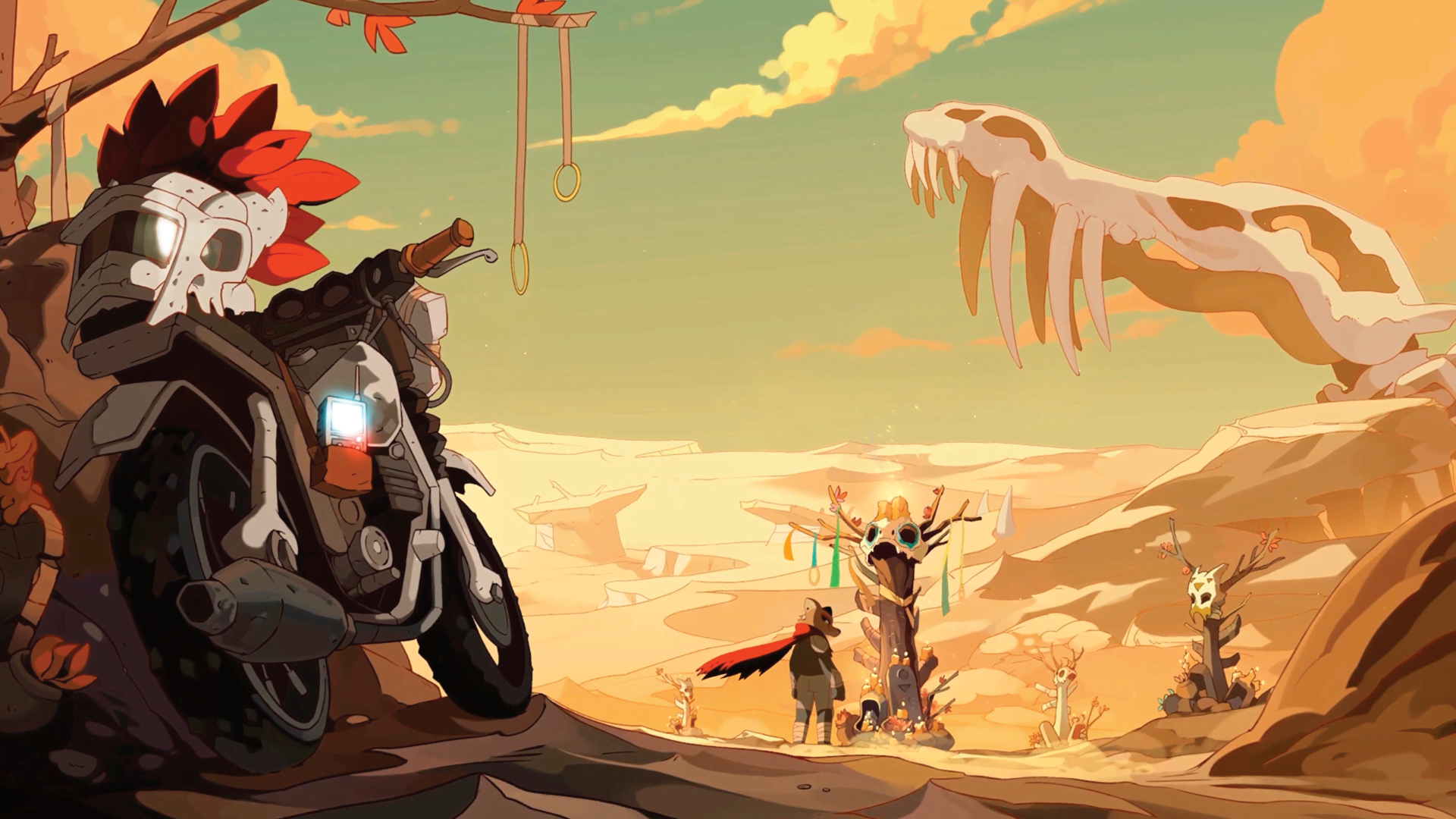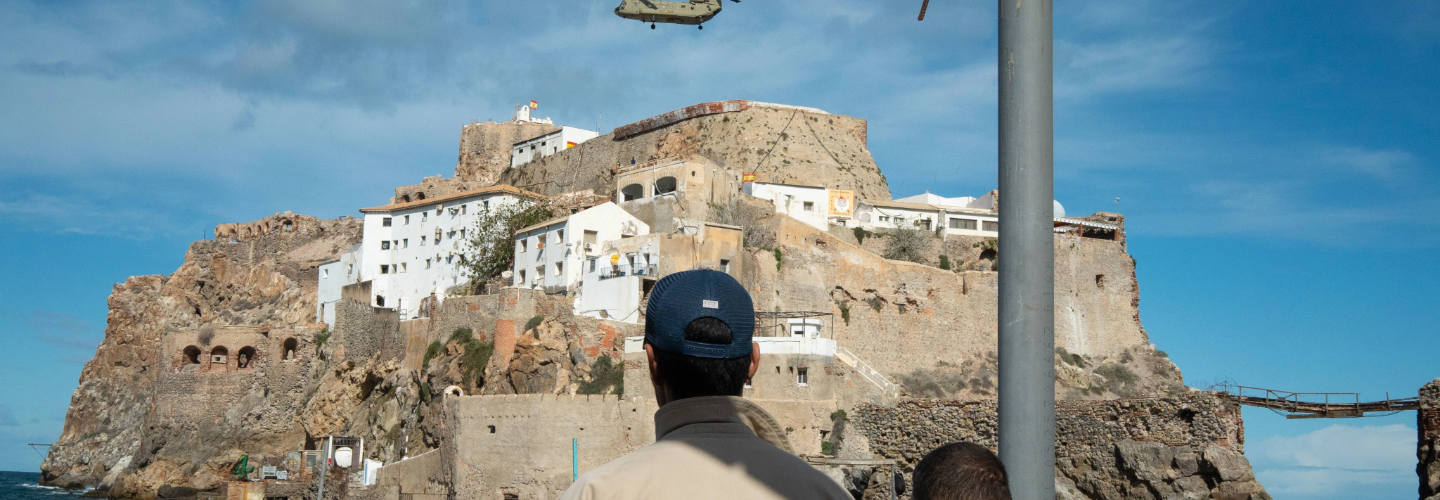Spanish Video Games, Increasingly Robust, Had a Turnover of 1.281 Billion in 2021 and Employed 8,833 People

● Turnover grew by 16% and employment by 10%. It is estimated that the industry will have a turnover of 2,239 million euros and will be employing more than 13,000 people by 2025
The Spanish video game sector had a turnover of 1.281 billion euros in 2021, a 16% increase over the figure for the previous year, and expects to exceed 2.2 billion in 2025, according to figures published in the ninth edition of the White Paper on Spanish Video Game Development 2022, published by DEV, the Spanish Association of Video Game and Entertainment Software Production and Development Companies presented today at the headquarters of ICEX Spain Export and Investment. Growth in the sector is not solely economic - the industry is also employing more and more people. In 2021, 8,833 professionals were working in the sector, an increase of 10% over the previous year, and the number of direct jobs is expected to exceed 13,000 by 2025. Twenty-four percent of employees are women, two points above the European Union average.
Other data highlighted in the latest edition of the White Paper emphasize the weight of Catalonia as a driving force for employment (48% of workers) and economic growth (52% of income) engine of the industry, despite the fact that both this community and Madrid share more than half (50.8%) of the active studios in our country. Andalusia and Valencia account for 6% of turnover and 10% of employment respectively, although the former is home to a larger number of studios (15% compared to 9%).
Seventy-five percent of the sector's turnover comes from abroad, with North America (31%) in first place, followed by the European Union (28%). The Spanish market accounts for 25% of sales, a lower figure than in previous years. There is still room for growth in regions such as Asia-Pacific (8%), one of the world's largest, and in Latin America (6%), which is experiencing rapid growth.
This year's event was attended by Héctor Gómez, Minister for Industry, Trade and Tourism, Víctor Francos, Secretary General of Culture and Sport, Matías González, Secretary General of Telecommunications and Regulation of Audiovisual Communication Services, and José Andrés Torres Mora, President of Acción Cultural Española, who were joined by Valeria Castro, President of DEV.
Héctor Gómez, Minister for Industry, Trade and Tourism said "The video game industry is one of the most dynamic sectors due to its creative talent and ability to adapt to market trends and user habits and preferences. And also because it promotes innovation and generates quality employment. The Government has demonstrated its commitment to an innovative, creative, young industry that has great potential and is capable of involving so many different organizations. And above all to bring together so much talent. We want to continue to promote the growth of Spanish companies and take advantage of their enormous potential, supporting development and internationalization projects, and working to attract foreign investment."
For his part, Víctor Francos, Secretary General of Culture and Sport, added "We have decided that of the three axes that the Ministry of Culture will be taking to the EU presidency, one is to be video games. Another is sport. Of the two priorities that the ministry will be taking to the presidency, one is video games. Spain is currently the fifth country in Europe in terms of investment in video games, and we want to be the first."
Finally, Valeria Castro, president of DEV concluded by saying "The new government will need to be aware of the opportunity it has to decide to make Spain a creator and not merely a consumer of external games."
Proof of the good health of the Spanish video game industry is the launch of titles such as Endling: Extinction is Forever, Temtem, The Night Witch and Red Matter 2. The first was awarded the BAFTA for the best “Game Beyond Entertainment" and nominated for the Video Game Awards in the category of games with the greatest impact. Endling, developed by HeroBeat Studios and published by HandyGames, is a game in which players assume the role of a mother fox who must take care of her cubs, the last foxes on the planet. Its message conveying the importance of sustainability, as well as its impact among the public and with critics, has led to Endling being on the cover of this year's White Paper.
Stagnation in number of studios, but growth in employment and turnover
One of the main findings of the White Paper is stagnation in terms of the number of active studios (760 compared to 755 the previous year). In addition to the turnover and employment data, the White Paper notes the consolidation of the Spanish industry, in which studios with a turnover of between 200,000 and two million euros a year (26.8%) are beginning to gain weight, while those with a turnover of less than 200,000 euros a year, which still account for 54%, have seen a nine-point decline.
The Spanish sector continues to be made up of companies with fewer than ten employees (66%), although 86% of the work is concentrated in those with more than eleven employees. The good news this year lies in the growing stability of the sector, with 65% of the companies operating in Spain having been in business for more than five years.
By region, if we join Spain to the rest of the European Union, the White Paper shows that our continent remains the main local video game market (53%), followed by North America (31%). Our interactive entertainment is still primarily consumed in digital format (67%), as physical format (3%) is negligible. Nearly one in five studios (19%) are engaged in commissioned work for third parties.
Spanish studios are becoming steadily more ambitious
Fifty-two percent of studios have financing needs of less than 300,000 euros for their next project. If we put compare this with the previous year's figures, we find that studios with larger projects are gradually growing: 44% (eleven points more than in 2021) needing between 300,000 and three million euros to get their next video game off the ground.
Self-financing and own resources (73% and 71% respectively) continue to be the main tools used by studios to make their projects a reality, although the number that work with a publisher (29%) who is responsible for investing in development, are on the rise. Twenty-nine percent of the studios received some form of public aid during 2022, with those granted by the autonomous communities being the most popular.
Requests from the sector: tax incentives, support for the sector, equality, and reinvestment by multinationals
Although the Spanish video game sector continues to grow, it is still lagging far behind the business figures of neighboring countries that have implemented measures to promote the consolidation of the sector. The 2022 White Paper includes four major requests from the industry:
1. Implement a system of tax incentives for production that not would only attracts major international productions to our country but would also facilitate the growth and consolidation of local studios. The measure already has the support of all parliamentary groups and the government that emerges from the next general elections will have the opportunity to implement it.
2. That the future government of the nation ensures the continuity of the plan to support the Spanish video game development industry, maintaining the lines of support implemented in the Recovery, Transformation and Resilience Plan. To do so, the budget allocation for lines such as public aid for the promotion of the video game sector and other forms of digital creation, aid for business R&D&I projects applicable to the audiovisual and video game fields, and the promotion of new public-private investment funds should be increased.
3. Encourage the incorporation of young professionals, with a particular focus on women, through initiatives that facilitate the creation of entry level positions in companies and promote equality in studios. These tools would facilitate the entry into the labor market of the large number of undergraduate and graduate students who complete their studies each year.
4. Design a reinvestment scheme for multinationals in the Spanish video game industry, similar to the one that has already been successfully applied in the audiovisual industry in Spain. The aim of such a scheme would be to commit a small part of the turnover of the companies that distribute physical and digital video games in our country to investment in national production. A 5% reinvestment could generate a pool of up to 90 million euros that could be allocated to the production of Spanish video games.
You can download the White Paper on Spanish Video Game Development 2022 here
Related
Related news
-

"cmp-button__icon--noticiasClock">19 April 2024
"cmp-button__icon--noticiasClock">19 April 2024
The Revolution of the Spanish Videogame Industry
The concept of the golden age of Spanish video games has always been associated with the 1980s, microcomputers, and 8-bit games; until now. With the emergence of digital markets and the indie boom, the Spanish video game industry has exploded, reaching levels of quality and international success that were unthinkable before. A growth that began at the beginning of the last decade and seems to have reached its peak during the past 2023; a year that, for many players, is the best in our industry in terms of quantity and quality.
Games"cmp-button__icon--noticiasClock">19 April 2024
-

"cmp-button__icon--noticiasClock">08 June 2023
"cmp-button__icon--noticiasClock">08 June 2023
Spanish Video Games, Increasingly Robust, Had a Turnover of 1.281 Billion in 2021 and Employed 8,833 People
The Spanish video game sector had a turnover of 1.281 billion euros in 2021, a 16% increase over the figure for the previous year, and expects to exceed 2.2 billion in 2025, according to figures published in the ninth edition of the White Paper on Spanish Video Game Development 2022, published by DEV, the Spanish Association of Video Game and Entertainment Software Production and Development Companies presented today at the headquarters of ICEX Spain Export and Investment. Growth in the sector is not solely economic - the industry is also employing more and more people. In 2021, 8,833 professionals were working in the sector, an increase of 10% over the previous year, and the number of direct jobs is expected to exceed 13,000 by 2025. Twenty-four percent of employees are women, two points above the European Union average.
Games"cmp-button__icon--noticiasClock">08 June 2023
-

"cmp-button__icon--noticiasClock">20 April 2023
"cmp-button__icon--noticiasClock">20 April 2023
Spanish Representation at the Marché du Film Stands out in 2023, with More than Twenty Spanish Projects Selected in Official Programs
The names of the projects selected to represent the Spanish film industry at the Cannes Film Festival market have been announced: five producers will participate in the Producers Network's Spanish Spotlight, four documentary proposals will be presented in the Spanish Showcase at Cannes Docs, five projects in development will be presented by Spanish Screenings at Goes to Cannes and eight short films will be shown at the Short Film Corner.
Fiction Docs Animation Games"cmp-button__icon--noticiasClock">20 April 2023









